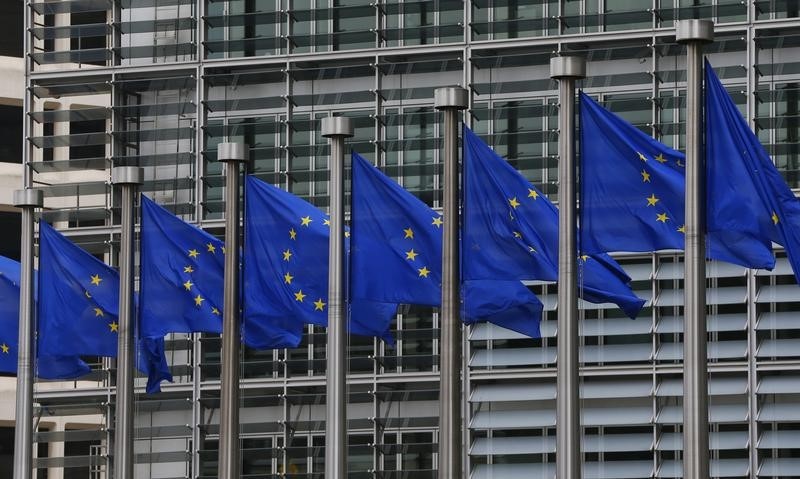By Huw Jones
LONDON (Reuters) - The European Union will put in place its "capital markets union" by 2019, starting with quick wins like encouraging direct investment in businesses, an EU document seen by Reuters showed.
The document, co-written by EU financial services chief Jonathan Hill, sets out a timetable for the first time on a core policy plank of the European Commission to help revive the bloc's flagging economy.
Harmonising rules for capital markets to increase the trade in stocks, bonds and other securities is an important goal for the EU. Many countries on the continent have historically relied more on bank loans than on traded securities to fund their businesses, which can make them vulnerable to shocks to the banking sector. The EU's executive Commission is due on February 18 to publish three papers to kick off its plans.
Sceptics say a fully seamless union of EU capital markets is impossible to achieve. Persuading the 28 EU member states to harmonise their tax and insolvency laws would be politically impossible. Britain, which supervises the EU's biggest capital market in London, has made clear it will not hand over full supervision of the industry to Brussels.
But Brussels believes there are a number of important steps it can take to boost investment and make the continent less vulnerable shocks to its banking sector.
A "Green Paper" will set out several short-term initiatives for coming months, such as making credit information on smaller companies more easily available for investors to see.
A second paper will outline proposals to encourage high-quality securitisation of debt based on pooled loans, making it easier for banks to free up their balance sheets for more lending, the document said.
A third paper will look at how EU rules on prospectuses published by companies to solicit funds will be reviewed to make it easier for smaller companies to raise capital on markets.
An "action plan" will be published in the second or third quarter of this year.
The commission will also "work with the industry to develop a pan-European private placement regime to encourage direct investment into businesses," said the document which was co-written by commission vice president Jyrki Katainen.
Longer-term measures would include changing rules for asset management or pension funds and measures to boost household investment into capital markets, it said.
Investment levels in the 28-country bloc are 230 billion to 370 billion euros(172.31 billion to 277.19 billion pounds) below the historical norm and spurring small changes in stock, bond and other markets could lead to significant benefits over time.
The EU document says there is a need to identify priorities for the medium to long term, "bearing in mind the need to balance ambition and political realism".

The document makes no mention of changes to how EU markets are supervised, as Britain resists any attempt to create a new super-watchdog that would hold sway over London.